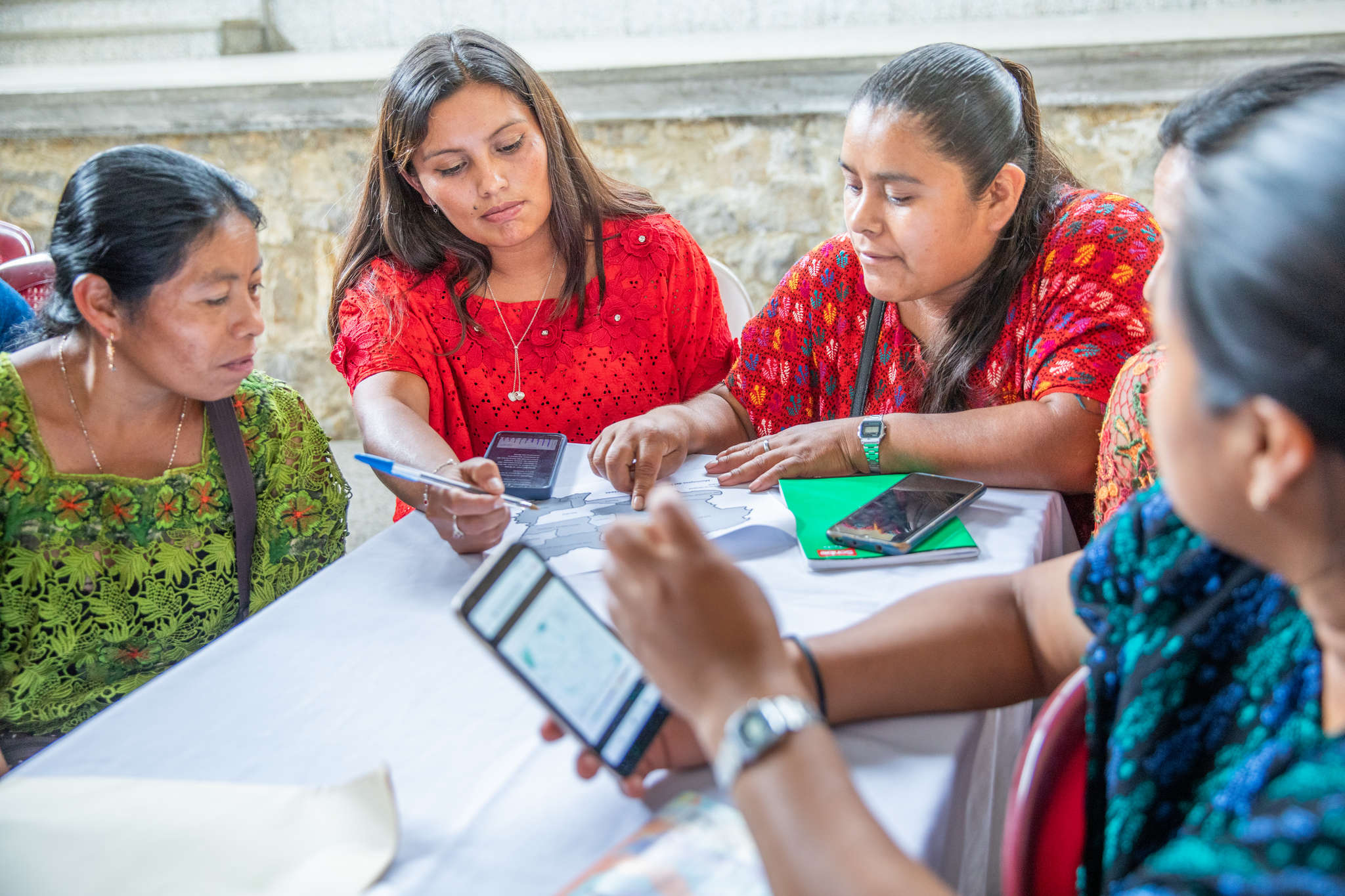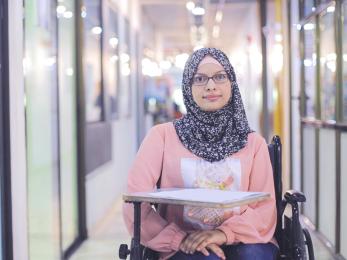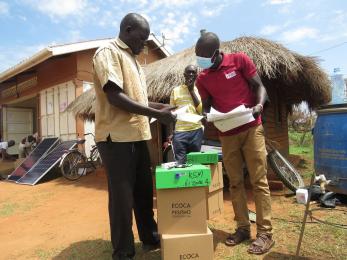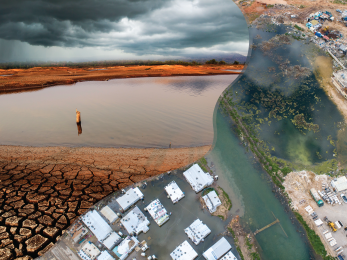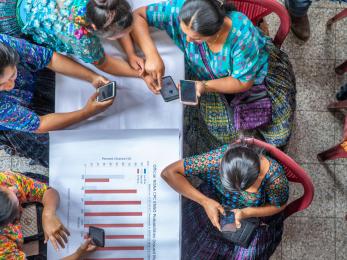Breadcrumb
Technology
From 2020 to 2025, the number of mobile phone users will increase by half a billion, reaching 5.7 billion—or 70% of the world’s population (GSMA, 2021). The majority of these new users will be in Sub-Saharan Africa, Latin America, and Asia, where mobile phones enable access to vital information and resources.
In an increasingly interconnected world, technology is both a driver of some of the challenges Mercy Corps works to overcome—and a potential solution. For example, dangerous speech and fake news that spread online and via social media are an increasingly prevalent driver of violent conflict and political events. On the other hand, social media can also be a platform for community building, outreach, and information dissemination when used appropriately.
Technology is a powerful way to increase scale, efficiency, and program quality in our work. With distributions of cash or goods, digital identities can help reduce fraud and ensure that more resources go to the people who need them most. Similarly, early warning messages sent before climate-related weather events enable remittance senders to quickly transfer money to loved ones, allowing them to prepare for the impact of the crisis.
-
2.5m+
-
280k
-
32
-
68
Our technology team works with field teams and external partners to unlock new possibilities and reach more people through the power of technology. We drive sustainable, scalable programmatic impact and support inclusive, resilient communities by maximizing the digital value chain for existing and emerging technologies.
We harness technology to improve aid delivery and advance economic development projects. For those facing the world’s most formidable challenges to receive the right assistance, they must be properly identified and registered by aid systems. Digital platforms that are integrated with governmental or other NGO systems can enhance this process. And for people to thrive in today’s economy, they must not only be connected to the internet, but also have the digital literacy to understand the online platforms and digital identities that have (or will) become a required qualification for access to social services in many countries.
Our technology team also works to strengthen data-driven decision-making and governance, using data to inform programmatic strategies, measure impact, and improve accountability through data analysis. We are strengthening our data literacy skills, fostering a data-use culture at Mercy Corps, and testing innovative technologies such as artificial intelligence (AI) and generative AI. By improving our internal data foundations, we can support our programs more effectively and become a more data-informed organization.
